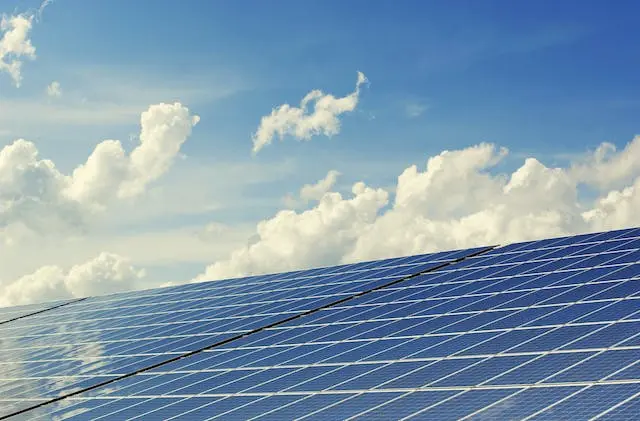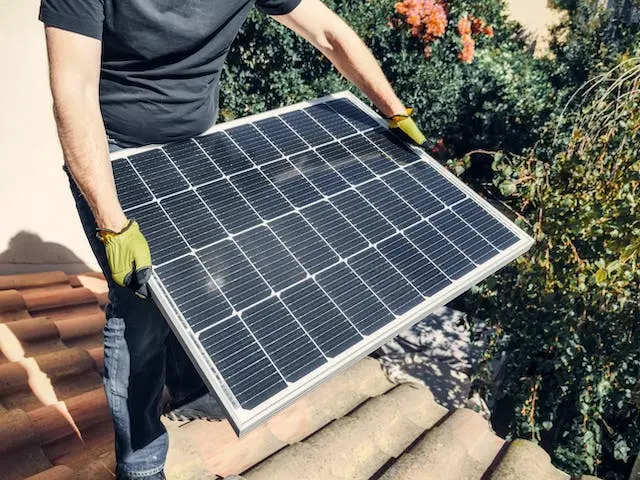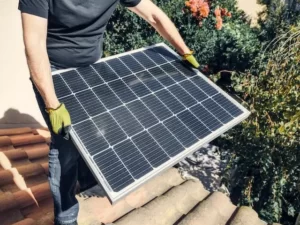Just as the mythical Icarus learned the hard way about the sun’s power, you, too, must consider the modern implications of our star’s might in the form of solar flares. These bursts of electromagnetic energy can disrupt everything from your cell phone to the electrical grid you rely on.
To safeguard your technology and maintain your way of life during such solar events, it’s essential to understand the tools and techniques available. You’ll need to know how to shield sensitive electronics, whether by employing devices designed to absorb or redirect the energy or by implementing simple practices in your daily routine.
But protection doesn’t stop at personal gadgets; there’s a bigger picture to consider. As you look around, you might wonder how communities and nations prepare for these celestial challenges, and what steps you can take to align with broader protective measures.
Stay with me as we explore this intricate dance with the sun, ensuring that when the next flare strikes, you’re not left in the dark.
Key Takeaways
- Stay informed about space weather updates from trusted agencies like NASA and NOAA to be prepared for potential disruptions caused by solar flares.
- Consider installing surge protectors, both at the individual outlet level and as a whole-house system, to guard against electrical spikes caused by solar flares.
- Upgrade your home’s electrical system, including investing in technologies like Faraday cages, capacitor banks, and grounding systems, to mitigate the impact of solar events.
- Develop a backup power strategy, such as investing in power generators, solar panels, and Uninterrupted Power Supplies (UPS), to ensure essential functions can be maintained during power outages caused by solar flares.

Understanding Solar Flare Impacts
When a solar flare occurs, it can wreak havoc on Earth’s technology and pose risks to human health, particularly for those in flight or space. These intense bursts of radiation can disrupt the delicate systems that keep satellite communication running smoothly. This means your GPS might go haywire, TV signals could scramble, and your internet connection may falter.
For airline passengers, the stakes are higher as the increased radiation at high altitudes can be a health hazard. Although the aircraft’s body provides some protection, it’s not a complete shield. So, if you’re a frequent flyer or an astronaut, keeping tabs on solar flare activity becomes essential.
Stay informed through agencies like NASA and NOAA, and always be prepared for potential disruptions.
Monitoring Space Weather
To safeguard our technology and well-being, you must regularly check space weather updates from trusted agencies like NOAA and NASA for information on solar flare activity. These organizations provide vital space weather forecasting that can alert you to potential solar storms. By staying informed, you can prepare for any disruptions these events might cause.

Moreover, international cooperation is key in the realm of space weather forecasting. Data and research shared across the global scientific community enhance our understanding of solar phenomena. Utilize platforms offering alerts and notifications, and keep an eye on satellite observations like those from the Deep Space Climate Observatory (DSCOVR).
Understanding these updates isn’t just academic; it’s a practical way to protect your advanced technologies and daily life from the whims of our sun.
Surge Protection Installation
In light of the risks posed by solar flares, you must install whole-house surge protectors to guard your home’s electrical systems. This surge protection equipment is your first line of defence in power surge prevention, shielding your appliances and devices from the electrical spikes that solar events can cause.
For individual electronics, plug-in surge protectors are a must. They’ll help prevent damage to your most sensitive and valuable devices.
If you’re aiming for extra security, consider storing backup electronics in a sealed metal container, effectively a DIY Faraday cage, especially during peak solar storm activity.

Electrical System Upgrades
You should consider upgrading your home’s electrical system as a proactive measure to protect against the potentially damaging effects of solar flares and EMP attacks. Installing surge protectors at individual outlets is a start, but for comprehensive solar flare preparedness, consider whole-house surge protection. This defends against power surges and electrical disruptions throughout your entire home.
Investing in a smart grid system enhances your home’s ability to cope with electrical grid vulnerabilities. Smart grids can automatically isolate and manage damaged areas, ensuring power restoration is more efficient.
Additionally, consider grid protection technologies like Faraday cages, capacitor banks, and grounding systems. These can help mitigate the impact of solar events.
Backup Power Strategies
Having a reliable backup power strategy is crucial for maintaining essential functions during a solar flare-induced power outage. When the grid goes down, you’ll want to be prepared. Here’s a simple list to ensure you’re ready:

- Invest in Power Generators: Regular generator maintenance is key to ensure it’s ready when you need it most.
- Opt for Solar Panels: Solar panel efficiency can provide a sustainable energy source, even during disruptions.
- Get a UPS: Protect your electronics with an Uninterrupted Power Supply to safeguard data.
- Emergency Kit Essentials: Stock up on flashlights, batteries, and other necessities to sustain you through the outage.
Surprising Facts About Solar Flares
- 🌞 Solar flares, bursts of electromagnetic energy from the Sun, can disrupt everything from cell phones to the electrical grid.
- 🌐 When a solar flare occurs, it can pose risks to human health, especially for those in flight or space, as increased radiation at high altitudes can be a health hazard.
- 📡 Solar flares can disrupt satellite communication systems, causing GPS malfunctions, scrambled TV signals, and faltering internet connections.
- 🛫 For airline passengers, the increased radiation during solar flares poses higher stakes, as the aircraft’s body provides some protection but not complete shielding.
- 🌍 Earth’s magnetic field and atmosphere act as natural shields against solar flares, safeguarding the planet from the potentially harmful effects of space weather.
- 🚀 The impact of solar flares on satellite communication systems underscores the importance of staying informed through agencies like NASA and NOAA.
- ⚡ Whole-house surge protectors are crucial for defending home electrical systems against the electrical spikes caused by solar events.
- 🏡 Upgrading a home’s electrical system with technologies like Faraday cages, capacitor banks, and grounding systems can mitigate the impact of solar events.
- 🌐 International cooperation is essential in the realm of space weather forecasting, with data and research shared across the global scientific community.
- 🌐 Platforms offering alerts and notifications, as well as satellite observations like those from the Deep Space Climate Observatory (DSCOVR), enhance our understanding of solar phenomena and contribute to better preparedness.
Frequently Asked Questions
What Blocks Solar Flares?
You’re exposed to solar flares, but Earth’s magnetic shielding helps. Protect your gear with Faraday cages; they’re like armour against electromagnetic interference, keeping your electronics safe during intense solar activity.
What Is the Defence Against Solar Flares?
To defend against solar flares, you’ll need to keep tabs on space weather updates and rely on accurate flare forecasting to prepare and protect your electronics with surge protectors and Faraday cages.
How Do You Prepare for a Solar Flare?
To prepare, you’ll need emergency kits stocked and communication plans set. Learn manual garage door operation and backup data. Stay informed on space weather to anticipate power outages and protect electronics.
What Keeps Solar Flares Away?
Your planet’s magnetic field and atmosphere are key in safeguarding you from space weather and deflecting solar flares and their potentially harmful effects. They’re your natural shields in this cosmic dance.
Conclusion
In conclusion, you’ve got to stay ahead of solar flares to protect your tech. Keep an eye on space weather updates and beef up your defences with surge protectors and system upgrades.
Don’t forget, a Faraday cage can be a lifesaver for your electronics. And in case things go dark, have backup power and a plan B for communication, like radios.
By taking these steps, you’ll keep your gear safe when the sun throws a curveball.



